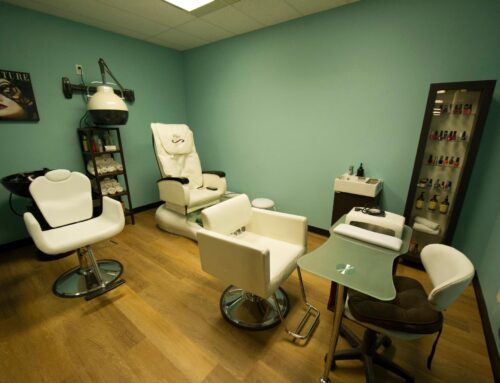As a care partner, taking on the responsibility and demands of caring for a loved one with a form of Memory Loss can be emotionally, physically, and mentally draining. While caregiving is undoubtedly an act of love and devotion, it can also lead to care partner burnout.
Studies have shown that family care partners are at a higher risk of experiencing high levels of stress, fatigue, and even depression compared to non-caregivers.
Understanding Care Partner Burnout
Care partner burnout is characterized by emotional exhaustion, depersonalization, and a diminished sense of achievement. It is often experienced by people who are responsible for the care of another person. For care partners who provide regular care to someone living with Memory Loss, burnout can be a hidden but progressive condition.
Factors leading to care partner burnout include but are not limited to, lack of sleep, emotional strain, and feeling isolated. Without professional support and the understanding of close family and friends, a care partner can feel unsupported and undervalued.
Recognizing the Symptoms of Burnout: A Self-Assessment
Recognizing the symptoms of care partner burnout can be difficult during the early stages.
-
Emotional Symptoms:
Emotionally, care partners can feel overwhelmed, frustrated, hopeless, irritable, anxious, or depressed. These can be experienced on their own or in combination with other emotions.
-
Physical Symptoms:
Physically, care partners may develop headaches, fatigue, body pains, weight loss or gain, and changes in appetite or sleep patterns. Decreasing energy levels can cause a weakened immune system opening the doors to other major physical symptoms.
-
Behavioural Symptoms:
Oftentimes, caring for another person may cause the care partner to neglect his or her own needs and wants. From neglecting personal care to withdrawing from social activities, a care partner’s well-being can become less of a priority.
The Importance of Early Identification
Early intervention can not only lead to better outcomes for both the care partner and the person living with Memory Loss but it also gives an opportunity to implement effective coping strategies. It’s a chance to slow down and take care of oneself, which can help prevent the onset of more severe health issues.
Finding Support Through Memory Care Services
Many Memory Care services are designed to support both the person living with Memory Loss and their care partner(s). By providing a safe and stimulating environment, individuals living with Memory Loss can receive professional care and socialization opportunities to improve their quality of life.
For care partners, Memory Care offers Respite Care, giving them much-needed breaks to practice self-care, attend personal appointments, run errands, and spend quality time spent with family and friends. Respite Care also provides care partners with resources, support groups, and educational seminars and workshops to help them learn safe and effective care methods and techniques. Care partners can benefit from meeting and spending time with others in similar positions.
Steps to Take if You Suspect Burnout
Self-Assessment
The Maslach Burnout Inventory (MBI) questionnaire is a commonly used self-assessment tool. This covers the main sectors of exhaustion, depersonalization, and personal achievement. In addition to the signs mentioned above, discovering the extent to which these symptoms are affecting your life is key to preventing serious physical, mental, and emotional conditions.
Seeking Professional Help
It is imperative to reach out for professional support. This could mean consulting with a medical doctor or a mental health professional such as a therapist or counsellor. It is important to pay attention to any physical symptoms you may be experiencing, such as headaches or stomach-aches, as these could be signs of underlying medical issues related to burnout.
Engaging with Memory Care Services
Memory Care services offer emotional and mental health support for care partners and can provide valuable resources. Respite Care can be tailored to your unique needs and the duration varies from one day to a week, a month, or longer. Transitioning to a Memory care environment, however, may require time and patience. Having a scheduled trial in the days leading up to the move may help ease the transition.
Finding the Right Memory Care Environment
When choosing the best Memory Care environment for your loved one, it’s important to acknowledge and understand their unique needs. Not every Memory Loss diagnosis is the same nor is there a one-size-fits-all treatment method that suits everyone.
When researching the appropriate Memory Care setting for their needs, note the level of care provided as Memory Loss is a progressive condition. Inquire about the care plans, amenities, programs, policies, security measures, and qualifications of the staff. A reputable setting will provide onsite medical and emergency care, lab services, and pharmaceutical services.
The services offered for the care partner are just as important as those offered for individuals living with Memory Loss. Check into the support resources available for care partners and family members.
During the initial consultation process, discuss the financial options, including possible insurance coverage, monthly payment plans, and government financial support.
Find Relief from Care Partner Burnout: Learn More About Memory & Company’s Services
Comprehensive and compassionate Memory Care is only a phone call away with Memory & Company. With two convenient locations in Markham and Oakville, our support programs are designed to enhance the quality of life of those living with Memory Loss AND provide physical, emotional, and mental support to care partners.
As the world’s first Respite Hotel, we offer a range of short-term and long-term accommodations for Respite Care, including a Premium Day program filled with activities tailored to each individual’s needs.
Contact us today to learn more about our holistic care approach to Memory Care and to schedule a personal tour of either one of our locations. Call (905) 888-8808 or email us at info@memoryandcompany.com.



